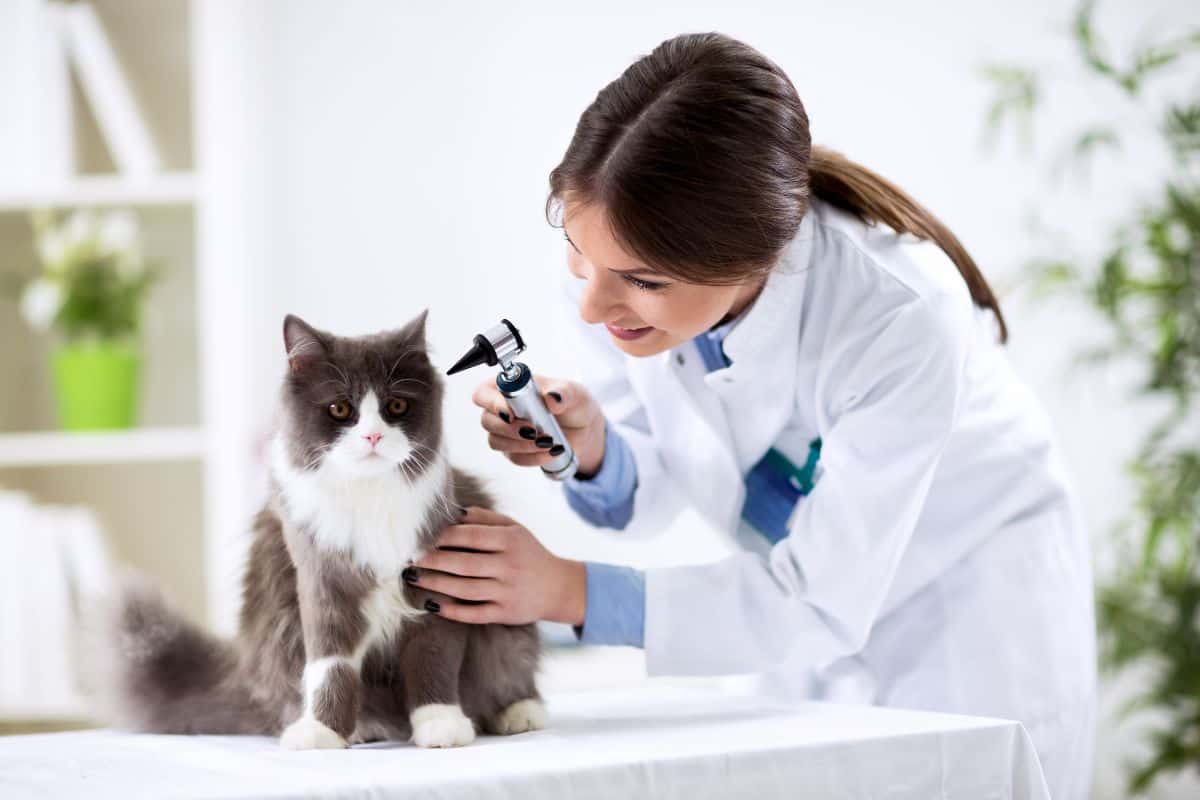Veterinary Specialties: 24 Types from A-Z

Embarking on the journey of veterinary specialties opens up a world where passion meets expertise, and animals receive tailored care from dedicated professionals. It's not just veterinarians who can specialize; even vet techs and veterinary assistants can carve their path towards mastery in specific areas.
In this realm of veterinary medicine, the term "veterinary specialties" encompasses a rich tapestry of focused expertise aimed at enhancing the health and well-being of various species. Let's delve into this intricate world where veterinarians, vet techs, and assistants, armed with specialized knowledge, play pivotal roles in ensuring the vitality of our beloved animal companions.
Species-Specific Specialization
Veterinarians, akin to doctors, often choose to specialize in specific species. This specialization ensures a deep understanding of the unique needs, physiology, and behaviors of different animals.
- Small Animals (Dogs and Cats): Veterinarians specializing in small animals excel in providing comprehensive care for our furry companions. This includes preventive medicine, diagnostics, and surgery tailored to the unique anatomy and health challenges of dogs and cats.
- Large Animals (Horses, Cows, etc.): Large animal specialists navigate the world of horses, cows, and other sizable creatures. Their expertise encompasses everything from equine dentistry and reproductive health to bovine nutrition and musculoskeletal care.
- Exotic Animals (Birds, Reptiles, etc.): Exotic animal specialists venture beyond the traditional, catering to the health needs of birds, reptiles, and other unconventional pets. Their knowledge extends to exotic species' specific diets, habitats, and medical intricacies.
- Aquatic Animals (Fish, Amphibians, etc.): Veterinarians specializing in aquatic animals dive into the unique challenges of fish, amphibians, and other water-dwelling creatures. They address issues related to water quality, nutrition, and aquatic disease management.
Specialties in Veterinary Medicine
For each of the species listed above, veterinarians can dive deeper into a specialty by mastering any of the following 24 veterinary specialties.
1. Anesthesia and Analgesia
These specialists play a crucial role in ensuring animals experience minimal pain during surgical and medical procedures. From administering anesthesia to monitoring pain relief, their expertise is indispensable in the operating room.
2. Animal Welfare
With a focus on ethical treatment, these professionals champion the well-being of animals. They may work in policy development, research, or on the front lines, advocating for humane practices in various settings.
3. Behavioral Medicine
Behavioral medicine specialists address and treat psychological and behavioral issues in animals. Whether it's separation anxiety in dogs or stress-related disorders in cats, these experts bring harmony to the human-animal bond.
4. Clinical Pharmacology
Experts in clinical pharmacology focus on the use of medications for treatment. They determine proper dosages, evaluate potential side effects, and ensure optimal drug therapy for various conditions.
5. Dentistry
Dental health is paramount for animals, and veterinary dentists specialize in oral care. From routine cleanings to complex dental surgeries, they ensure animals maintain healthy teeth and gums.
6. Dermatology
Animals can suffer from various skin conditions, and dermatologists specialize in diagnosing and treating these issues. From allergies to infections, their expertise keeps our pets' skin healthy.
7. Emergency and Critical Care
In emergency situations, these specialists are the frontline heroes. They excel in handling critical cases, providing life-saving interventions, and ensuring animals receive prompt and effective care.
8. Integrative Medicine
Integrative medicine specialists blend traditional and alternative therapies. This approach may include acupuncture, herbal medicine, and chiropractic care, offering holistic solutions to enhance animal health.
9. Internal Medicine
Focusing on internal diseases, these specialists diagnose and treat complex conditions affecting organs such as the heart, liver, and kidneys. Their expertise is vital in managing chronic illnesses.
10. Laboratory Animal Medicine
Specialists in this field ensure the welfare of animals used in research. They oversee their housing, care, and work towards advancing scientific knowledge while maintaining ethical standards.
11. Microbiology
Microbiology specialists study and treat infectious diseases. They play a pivotal role in identifying pathogens, developing vaccines, and implementing strategies to control the spread of diseases.
12. Nutrition
Nutritionists focus on creating specialized diets for animals. From formulating balanced pet food to addressing nutritional deficiencies, they contribute significantly to the overall health and well-being of animals.
13. Oncology
Oncologists specialize in the diagnosis and treatment of cancer in animals. They develop treatment plans, which may include surgery, chemotherapy, and radiation, aiming to improve the quality of life for pets with cancer.
14. Ophthalmology
Ophthalmologists focus on specialized eye care for animals. From cataract surgery to managing glaucoma, their expertise ensures animals maintain optimal vision.
15. Pathology
Pathologists study the causes and effects of diseases. They play a crucial role in diagnosing illnesses through post-mortem examinations and analyzing tissues.
16. Poultry Veterinary Medicine
Specializing in the health of poultry, these veterinarians ensure the well-being of chickens, ducks, and other birds raised for meat or eggs.
17. Preventive Medicine
Preventive medicine specialists focus on disease prevention in animals. They develop strategies, vaccination protocols, and health management plans to keep animals healthy.
18. Public Health & Food Safety
Experts in this field ensure the safety of animal products for human consumption. They work to prevent the spread of zoonotic diseases and maintain the integrity of the food supply chain.
19. Radiology
Radiologists utilize advanced imaging techniques for diagnosis. From X-rays to MRIs, they play a crucial role in identifying internal issues without invasive procedures.
20. Sports Medicine and Rehabilitation
Specializing in injuries and rehabilitation, these professionals work with athletes and active animals. They employ physiotherapy, hydrotherapy, and other techniques to facilitate recovery and prevent future injuries.
21. Surgery
Surgeons perform various surgical procedures, ranging from routine spaying and neutering to complex orthopedic surgeries. Their skillful hands contribute to the overall health and longevity of animals.
22. Theriogenology
Theriogenologists specialize in reproduction and breeding. They play a crucial role in ensuring the success of mating programs, artificial insemination, and managing reproductive health.
23. Toxicology
Toxicologists study and treat poisoning in animals. They identify toxic substances, provide treatment protocols, and contribute to public awareness of potential hazards.
24. Zoological Medicine
Veterinarians in zoological medicine care for animals in zoos and wildlife settings. Their expertise extends to species conservation, disease management, and ensuring the well-being of animals in captivity.
The range of veterinary specialties reflects the commitment of professionals to the diverse needs of animals. Whether it's a beloved family pet or an exotic species in a zoo, the expertise of these specialists ensures that each creature receives the optimal care tailored to its unique requirements. Aspiring veterinarians, consider this your roadmap to a fulfilling and impactful career.
For those ready to embark on this journey, beginning as a vet assistant at The Academy of Pet Careers can serve as the perfect starting point. This academy provides invaluable hands-on experience and foundational knowledge, laying the groundwork for a successful career in veterinary medicine. It's here that your passion for animals can flourish, setting you on the path to making a meaningful difference in their lives.
Frequently Asked Questions
Consider your interests, the type of animals you are passionate about, and the aspects of veterinary care that resonate with you. Additionally, evaluate the demand for specialists in your chosen field.
The path to specialization typically involves completing a veterinary degree (DVM or equivalent), gaining practical experience, and then pursuing additional training through internships, residencies, and board certification. The entire process can take several years.
While it's possible, switching specialties usually involves additional training and certification. It's essential to carefully consider your choice initially, but flexibility exists for those willing to invest in further education.
Demand varies among specialties. Some areas, like emergency and critical care, may have a higher demand due to the urgent nature of the cases, while others may have fewer specialists. Researching current trends in the veterinary job market is advisable.
While focusing on one specialty is common, some veterinarians may choose to work in multiple areas, especially if they are skilled in complementary fields. However, balancing multiple specialties can be challenging and requires careful time management.
 Author - Joseph Schifano
Author - Joseph Schifano
Joseph Schifano is the owner and President of The Academy of Pet Careers. With over 20 years of experience working in the pet field, managing large scale pet care businesses, he has experience in every facet of the industry. Joseph's focus is primarily on the business of pet care but his passion is in understanding animal behavior how a dog's brain works so we can improve the care we provide as pet professionals. He is a huge advocate for Pet Empowerment and Force Free training methods. Read more in Joseph's full bio.
